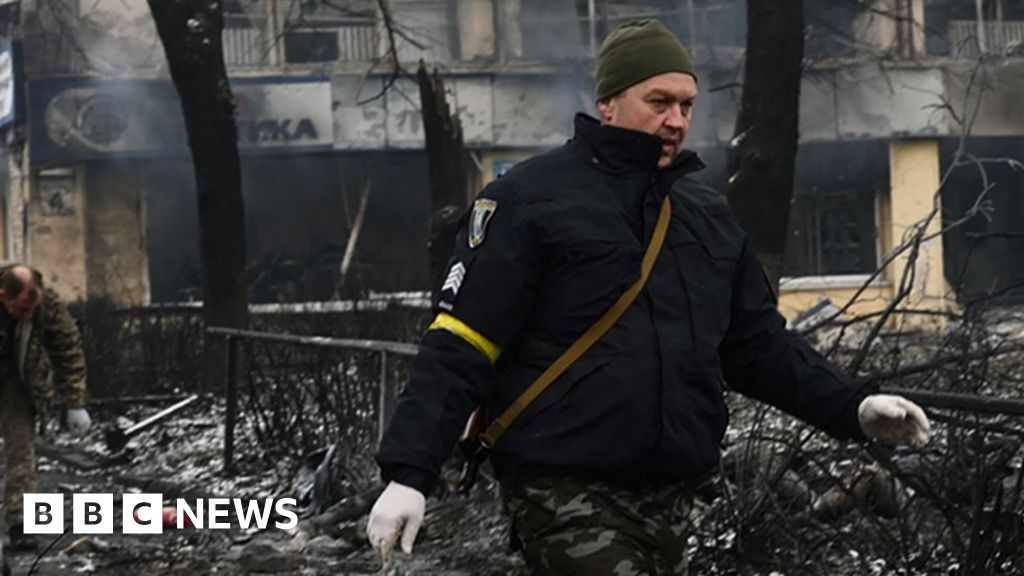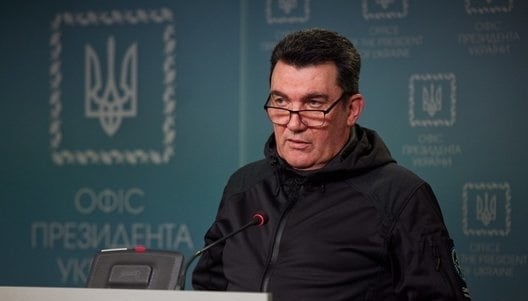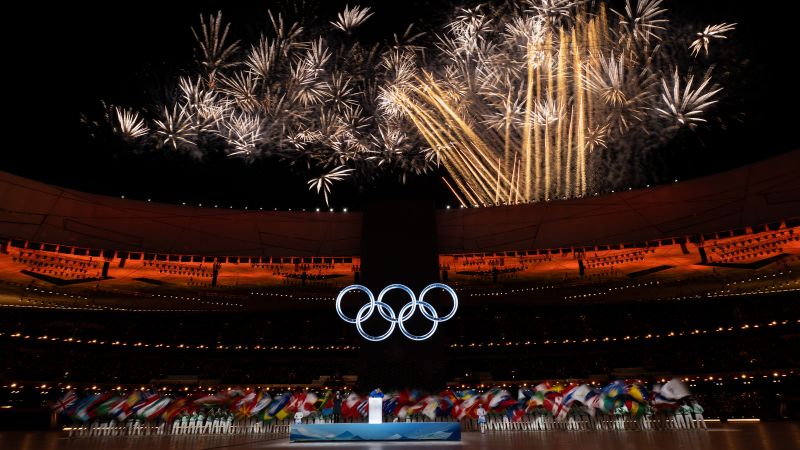Which would be even sadder though?
Ukrainian city of Mariupol 'near to humanitarian catastrophe' after bombardment
The deputy mayor of Mariupol says he believes hundreds of people have died in the Russian onslaught.www.bbc.com
While this is sad, we may see the Russians pick up steam
Ukraine
- Thread starter Silvanus
- Start date
typo, I meant to say " Well this is sad"Which would be even sadder though?
Russia taking the city is very tragic, And does not bode well for Ukraine
That sounds familer to 2003 lraq.Not that Putin thought he could succeed over two decades of resistance, but that there'd never be any resistance to begin with.
"Now, I think things have gotten so bad inside Iraq, from the standpoint of the Iraqi people, my belief is we will, in fact, be greeted as liberators. -Dick Cheney, US VIce President under GW Bush, March 2003
How did that go, Dick?
In a weird way, probably better than he had any right to expect. But not nearly as well as he wanted it to.That sounds familer to 2003 lraq.
"Now, I think things have gotten so bad inside Iraq, from the standpoint of the Iraqi people, my belief is we will, in fact, be greeted as liberators. -Dick Cheney, US VIce President under GW Bush, March 2003
How did that go, Dick?
Keep in mind iraq had an unpopular leader to his own people and his neighbors, Fell rather quickly, less culturally United, The war had popular support in the United States, United States was not heavily sanctioned and Iraq didn't border Europe and it still ended in disaster.That sounds familer to 2003 lraq.
"Now, I think things have gotten so bad inside Iraq, from the standpoint of the Iraqi people, my belief is we will, in fact, be greeted as liberators. -Dick Cheney, US VIce President under GW Bush, March 2003
How did that go, Dick?
Even if they managed to take Ukraine the damage of the war will haunt Eastern Europe for a long time
There was also talk of using submarines to deliver nuclear devices. Not by means of missiles, but of discreely leaving things on the seabed in or near the harbours of port cities.Maybe, maybe not.
Back in those days, they dropped nukes out of planes. I'm not totally sure the USSR would have been able to get a plane with a nuke anywhere in the USA except Alaska... and there's just not anything there worth spending a nuke on.

On March 4, Russia set to impose martial law – Ukraine’s NSDC secretary
The Secretary of the National Security and Defense Council of Ukraine, Oleksiy Danilov, has confirmed earlier reports that from March 4, the Russian Federation intends to impose martial law across the country. — Ukrinform.
This does not seem good
So how do they do this and still manage to maintain the pretence that everything is fine and ethically justified and under control?
On March 4, Russia set to impose martial law – Ukraine’s NSDC secretary
The Secretary of the National Security and Defense Council of Ukraine, Oleksiy Danilov, has confirmed earlier reports that from March 4, the Russian Federation intends to impose martial law across the country. — Ukrinform.www.ukrinform.net
This does not seem good
Russia is not backing down on this invasion. They'll keep whittling away at Ukrainian defenses until the country falls.
Ukrainian city of Mariupol 'near to humanitarian catastrophe' after bombardment
The deputy mayor of Mariupol says he believes hundreds of people have died in the Russian onslaught.www.bbc.com
Well this is sad, we may see the Russians pick up steam
As long as all the world does is sit around in a circle and vote to finger-wag at Russia for being a bad boy, Ukraine will be part of Russia by year's end.
And coincidentally, I figure that China is taking extensive notes on the situation.
Russia literally donated the equipment to shoot down a civilian airliner and smuggled it out again and suffered no repercussions, they knew they could do whatever they wished and the world would do nothing.Russia is not backing down on this invasion. They'll keep whittling away at Ukrainian defenses until the country falls.
As long as all the world does is sit around in a circle and vote to finger-wag at Russia for being a bad boy, Ukraine will be part of Russia by year's end.
And coincidentally, I figure that China is taking extensive notes on the situation.
Weird shit...

 www.abc.net.au
-
www.abc.net.au
-
"That's why they had to make the militia and had to defend themselves," he says. "They were under attack both from the Ukrainian army and from Nazi battalions and Nazi paramilitary units."
He singles out a particular paramilitary group, the Azov Regiment.
"They began as Nazi paramilitary groups, they are formed from skinheads and from white supremacist groups and from Nazis. They are far-right extremists who are legal in Ukraine, that have heavy weapons in Ukraine and that they can do whatever they want fighting against people of Donbas."
It's a line the Kremlin has been pushing since Russia invaded Crimea in 2014. And it's not subtle. That year, ahead of a referendum to join Russia, I saw authorities erect giant billboards across Crimea showing maps of Ukraine covered in swastikas. Other billboards showed a giant Mother Russia pushing back a Nazi stormtrooper.
In part, it was a reference to World War II, when Ukrainian extremists led by Stepan Bandera sided with Nazi Germany to try to win independence from the Soviet Union. But the Azov Regiment has been a handy update for the narrative.
Azov emerged in 2014 from a collection of often violent ultranationalists who joined peaceful democrats in the Maidan protests against the pro-Russian government. Russia portrayed the uprising as a Nazi coup and armed and supported separatists in Donbas.
The Azov battalion – mainly drawn from local Russian speakers – threw itself into the fighting with separatists, helping to wrest back the eastern port of Mariupol. Its success endeared it to a new Ukrainian government desperate to not lose more territory.
Politicians ignored or played down Azov's Neo-Nazi ideology and symbols, like the Sonnenrad (sun wheel) displayed on its insignia. Some far-right figures were given senior positions in the civil administration. In November 2014, Azov was expanded from a battalion into a regiment and absorbed into the Ukrainian National Guard.
It was a propaganda gift for Russia, especially after the Christchurch massacre of 2019 when the shooter was found to have a Sonnenrad emblem on his backpack.
....
There is an ocean of competing claims on the far right's influence in Ukraine, but what is clear is that it has almost no public support.
In the 2019 election, far-right parties including Right Sector, which absorbed many Azov leaders, received less than 3 per cent of the vote, below the threshold to enter parliament. Ukraine elected a Jewish president, Volodymyr Zelenskyy, who appointed a Jewish Prime Minister, Denis Shmyhal.
But still, the Kremlin insists, Ukraine is a Nazi state. Russian politicians can barely mention Ukraine without saying the word. Russian state television reports are full of stories of alleged Nazi atrocities.
Alexandra Lygina is a true believer.
''Ukraine is not a part of the Russian world anymore because Ukraine chose its way to the West," she says. "It became a Nazi country. And the Russian world is against such things."
To the West, Russia's invasion is seen as vicious and unjustified. Not here
Foreign Correspondent spends a week inside the alternative reality of the "anti-fascist" Donetsk People's Republic in the lead-up to Russia's invasion of Ukraine.
"That's why they had to make the militia and had to defend themselves," he says. "They were under attack both from the Ukrainian army and from Nazi battalions and Nazi paramilitary units."
He singles out a particular paramilitary group, the Azov Regiment.
"They began as Nazi paramilitary groups, they are formed from skinheads and from white supremacist groups and from Nazis. They are far-right extremists who are legal in Ukraine, that have heavy weapons in Ukraine and that they can do whatever they want fighting against people of Donbas."
It's a line the Kremlin has been pushing since Russia invaded Crimea in 2014. And it's not subtle. That year, ahead of a referendum to join Russia, I saw authorities erect giant billboards across Crimea showing maps of Ukraine covered in swastikas. Other billboards showed a giant Mother Russia pushing back a Nazi stormtrooper.
In part, it was a reference to World War II, when Ukrainian extremists led by Stepan Bandera sided with Nazi Germany to try to win independence from the Soviet Union. But the Azov Regiment has been a handy update for the narrative.
Azov emerged in 2014 from a collection of often violent ultranationalists who joined peaceful democrats in the Maidan protests against the pro-Russian government. Russia portrayed the uprising as a Nazi coup and armed and supported separatists in Donbas.
The Azov battalion – mainly drawn from local Russian speakers – threw itself into the fighting with separatists, helping to wrest back the eastern port of Mariupol. Its success endeared it to a new Ukrainian government desperate to not lose more territory.
Politicians ignored or played down Azov's Neo-Nazi ideology and symbols, like the Sonnenrad (sun wheel) displayed on its insignia. Some far-right figures were given senior positions in the civil administration. In November 2014, Azov was expanded from a battalion into a regiment and absorbed into the Ukrainian National Guard.
It was a propaganda gift for Russia, especially after the Christchurch massacre of 2019 when the shooter was found to have a Sonnenrad emblem on his backpack.
....
There is an ocean of competing claims on the far right's influence in Ukraine, but what is clear is that it has almost no public support.
In the 2019 election, far-right parties including Right Sector, which absorbed many Azov leaders, received less than 3 per cent of the vote, below the threshold to enter parliament. Ukraine elected a Jewish president, Volodymyr Zelenskyy, who appointed a Jewish Prime Minister, Denis Shmyhal.
But still, the Kremlin insists, Ukraine is a Nazi state. Russian politicians can barely mention Ukraine without saying the word. Russian state television reports are full of stories of alleged Nazi atrocities.
Alexandra Lygina is a true believer.
''Ukraine is not a part of the Russian world anymore because Ukraine chose its way to the West," she says. "It became a Nazi country. And the Russian world is against such things."
Last edited:

China asked Russia to delay Ukraine invasion until after Olympics, Western intel shows | CNN
A Western intelligence report indicated that Chinese officials in early February requested that senior Russian officials wait until after the Beijing Olympics had finished before beginning an invasion into Ukraine, US officials said Wednesday.
In case there was any doubt about whether this was planned or not.
The first ICBM was built and tested in 1957. Submarine launched ballistic missiles came even later. There aren't really any better ways of delivering a nuclear warhead than those two. None that come even close to "mutually assured destruction" without installations that are much closer.Maybe, maybe not.
Back in those days, they dropped nukes out of planes. I'm not totally sure the USSR would have been able to get a plane with a nuke anywhere in the USA except Alaska... and there's just not anything there worth spending a nuke on.
Not exactly the most reliable method.There was also talk of using submarines to deliver nuclear devices. Not by means of missiles, but of discreely leaving things on the seabed in or near the harbours of port cities.
Left out of this story is that Bandera has been voted by parliament more than once to be declared a national hero of Ukraine-- 2010 and 2018, iirc. This suggests that the various Neo-Nazi militias aren't as different from at least some of the more mainstream parties as you might hope. Oh, and also that Bandera's organization, OUN, killed hundreds of thousands of Jewish and Polish civilians; they didn't just fight the Soviet army "in an effort to win independence": they actively participated in genocide.In part, it was a reference to World War II, when Ukrainian extremists led by Stepan Bandera sided with Nazi Germany to try to win independence from the Soviet Union. But the Azov Regiment has been a handy update for the narrative.
Seems like the evidence for this is "we say so".
China asked Russia to delay Ukraine invasion until after Olympics, Western intel shows | CNN
A Western intelligence report indicated that Chinese officials in early February requested that senior Russian officials wait until after the Beijing Olympics had finished before beginning an invasion into Ukraine, US officials said Wednesday.www.cnn.com
In case there was any doubt about whether this was planned or not.
Saying that gay pride marches are Nazi?Seems like the evidence for this is "we say so".
Did you read it? You know, where they were talking to people? One person is talking about not wanting Ukrainian Nazis in 'their' territory. Another one doesn't want gay pride matches from Ukraine in their 'territory'
Are we looking at the same article?Did you read it? You know, where they were talking to people? One person is talking about not wanting Ukrainian Nazis in 'their' territory. Another one doesn't want gay pride matches from Ukraine in their 'territory'
Sauce for the goose, mate.Seems like the evidence for this is "we say so".
By making everyone who says otherwise "disappear". (Maybe a few of them will "accidentally" fall out of very high windows.)So how do they do this and still manage to maintain the pretence that everything is fine and ethically justified and under control?
